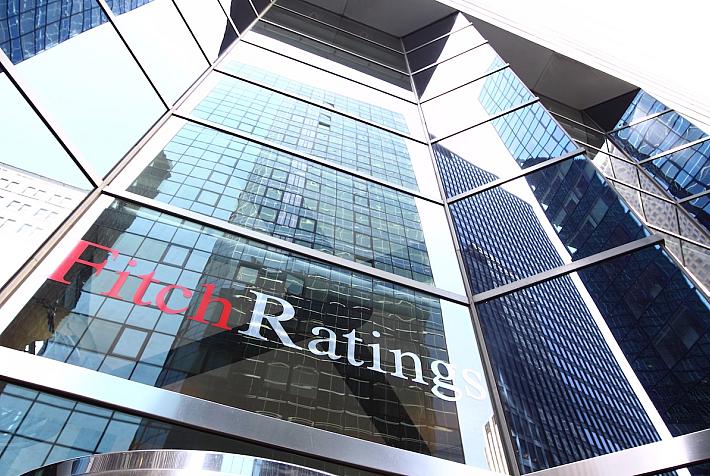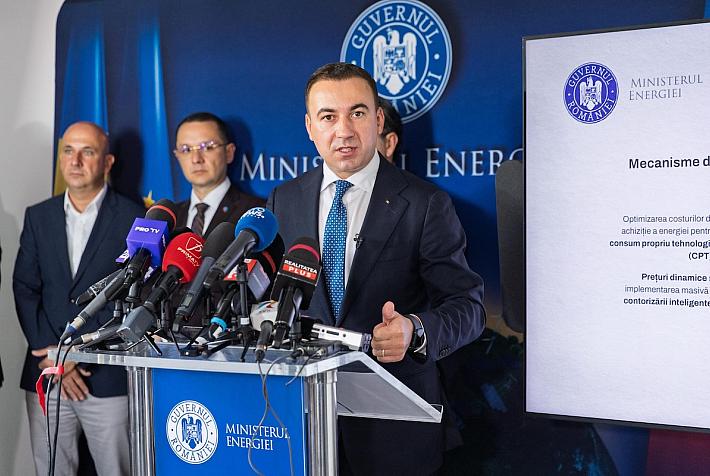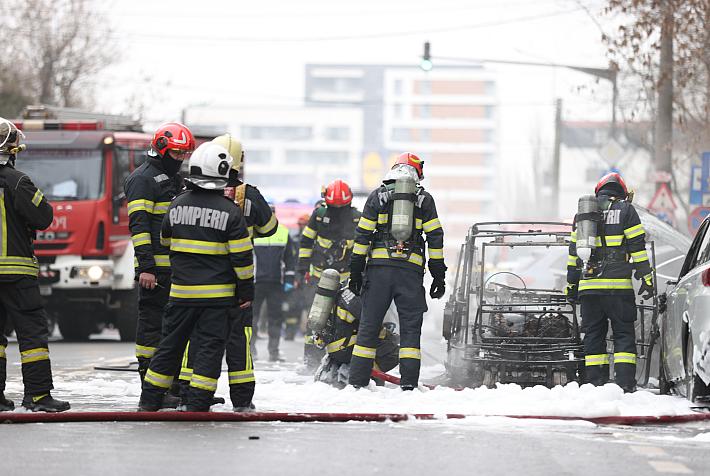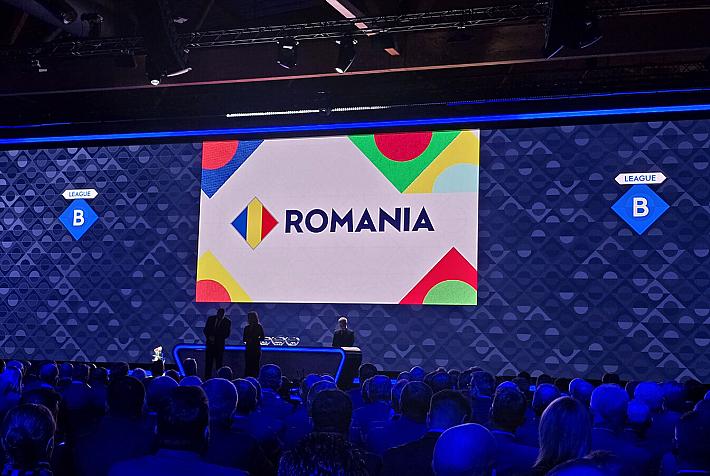Rudi Vizental, ROCA Investments: We want to put Romanian private equity on the international map
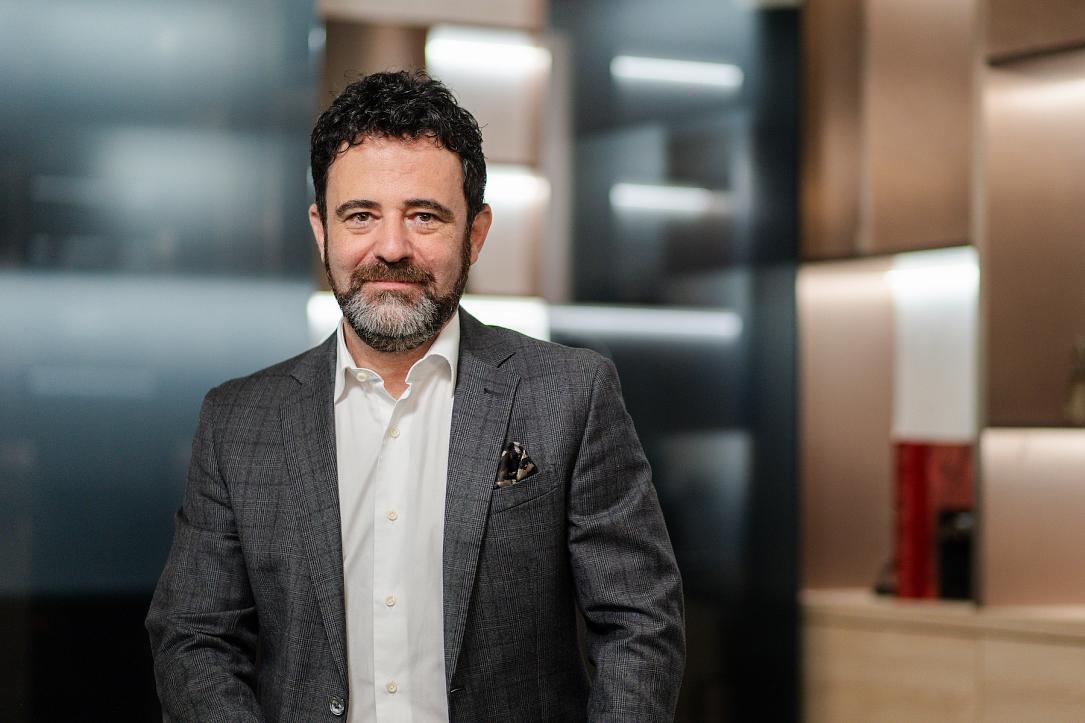
Rudi Vizental, CEO of ROCA Investments, talks about the challenges of developing the first local private equity business in Romania and finding a business model that meets specific market demands and also brings long-term added value as the company records six consecutive years of growth despite a challenging 2023.
“Our mission at ROCA Investments is to put private equity on the map in Romania by developing it as a product, philosophy, and concept in a country where neither the culture nor the practice of the private equity area exists. We do this because we know the importance and value of private equity in business development, especially for SMEs,” says Rudi Vizental, who has been at the helm of ROCA Investments since the company was launched in 2018.
ROCA Investments started as a fund for distressed companies, then pivoted towards high-growth companies and ultimately settled to become a buyout private equity firm, structured as an evergreen fund. The company aims to address two needs it has identified in Romania, the succession of local entrepreneurial companies and the consolidation of local businesses under the umbrella of specialized holdings, with the goal of creating regional players.
“We do not aim to buy companies to sell them quickly. We buy to consolidate them and create long-term value, which requires time and knowledge, and that is why we pursue an evergreen model. Recognizing that our investors require both high returns and liquidity opportunities, ROCA Investments plans to go public in 2026, marking a significant milestone in our growth strategy.” explains ROCA’s CEO.
So far, ROCA Investments has raised approximately EUR 44 million, primarily from influential Romanian entrepreneurs – the so-called High Net Worth Individuals. However, the company’s goal is to reach a size that puts it on the radar for local and international institutional investors and prove that private equity can contribute to developing the local business sector while generating profits for investors.
“We combine the financial investor know-how of the private equity company with the specialized investor know-how of the holdings, and this combination should be our winning recipe in the long run,” Rudi Vizental concludes.
Read more in the Q&A interview below:
What is the mission of ROCA Investments in the business environment in Romania?
Rudi Vizental: I'll start with a bit of context. A healthy financial sector has three components: the banking sector, the capital market, and the private equity sector. In developed countries, they are balanced in size and play complementary roles. When a company needs credit, it goes to the bank, and when it needs capital, it goes to the capital market or a private equity fund. In Eastern Europe, the capital market segment is less developed, and the private equity area is almost nonexistent. Among the Eastern European countries, Romania is last in terms of the ratio between private equity investments and GDP, which is five times smaller than the regional average.
In this context, our mission at ROCA Investments is to put private equity on the map of Romania by developing it as a product, philosophy, and concept in a country where neither the culture nor the practice of the private equity area exists. We do this because we know that the private equity area is necessary and valuable for business development, especially for SMEs.
Starting from the stated objective of strengthening the SME area, between 2018 - 2023, the amounts invested by ROCA Investments in Romanian companies reached EUR 54 million in direct investments and another EUR 55 million in investments made by portfolio companies.
How would you define ROCA Investments today?
Rudi Vizental: As a private equity company, it's very good to put yourself in a category. There is the venture capital area that targets mainly the technology sector, then the high-growth area dedicated to very dynamic companies, and then the buyout area. With ROCA Investments, we have positioned ourselves as a buyout fund. Not from the start, but after we explored the market and understood a few things.
Firstly, here is the greatest need because many local entrepreneurial companies have no succession options. We are talking about those companies of entrepreneurs who started businesses 30 years ago, grew valuable brands and strong companies, and have reached retirement age, hoping they could pass the baton to the next generation. Most often, this does not happen, and so we come in to solve this succession problem.
Secondly, as a buyout fund, we can contribute to consolidating local businesses. There are many small companies that compete with each other, and from them, we aim to form much larger players, not just through organic growth but also through M&As. Then, we focus on specific areas of activity where we consolidate companies.
Thirdly, we pursue regional development, going beyond the country's borders and building regional champions.
To sum up, ROCA Investments aims to create added value through these three elements: succession, consolidation, and regional development.
Another important thing I must mention is that the specifics of our business are different from those of a traditional private equity fund. Generally, private equity is established for ten years; in the first years, it buys companies; in the following years, it grows them and then sells them and distributes the profits to investors. We pursue an evergreen model, and so we do not aim to buy companies to then sell them, but we buy to consolidate them and generate long-term value.
How were the first six years of activity at ROCA Investments, and what were the biggest challenges you faced during this period?
Rudi Vizental: It has been six years with many challenges. At the same time, they were spectacular years, probably unique in the life of the management team.
What I want to point out is that ROCA Investments records its sixth consecutive year of growth, despite facing a challenging year, reaching in 2023 a market value of EUR 81.64 million. Moreover, the company’s equity market value increased 3.7 times from 2018 to the end of 2023.
The challenge was starting the project and finding the first investors who believed in our plan. In private equity activity, it is very important to have a track record. Because we didn't have that then, it was essential - and here we were lucky - that the first two investors who came were representative, very well known, and with an impeccable reputation, contributing to our subsequent success.
Another challenge was to make the first exit because, in private equity, success is most often measured at the exit.
It has been and continues to be challenging to manage the portfolio, attract new investors, and develop a management team with greater experience. We often use the phrase 'fixing the airplane while flying' because just after we started, the pandemic came, then inflation, the war, and the threat of recession. In practice, we have been moving from one crisis to another, all being challenges. Still, it's hard to choose one and say this was the biggest challenge.
In private equity, consistency is very important. This means avoiding the fluctuation between good and bad years, and instead, sustaining steady performance annually. It requires a long-term perspective, steering clear of short-term speculation.
However, I believe the biggest challenge was defining our product. Initially, we aimed to address companies in distress and these were our first five transaction. Later, we shifted towards high-growth areas, and discovered two very important elements: the succession problem that we assumed we could address and, secondly, the specialization in holdings that grouped companies within the same field of activity. This journey led us to stabilize in our current focus area.
So the fact that we were permanently looking for a single answer to these two questions – ‘What does the market need?’ and ‘Where do we manage to create added value?’ - and to turn this answer into our product, that was the biggest challenge.
How did you convince so many influential entrepreneurs in Romania to become investors in this project?
Rudi Vizental: I think the secret combines the project's mission and the confidence that we can deliver this promise. Specifically, to achieve our goal of having an impact in the private equity and SME area but also to generate profit, maintaining a good reputation, with total transparency towards investors, having a granularity of risk because we don't keep all our eggs in one basket, and through a continuous communication process.
The investor relations activity in a private equity company is essential. The correct approach is to understand that these investors are your customers. They are the ones who trust, buy the product, give you the money, and expect you to keep your promise through exemplary execution.
So far, you have predominantly attracted funds from individual investors. Is there interest from both Romanian and foreign institutional investors in investing in a Romanian private equity fund? What are the limitations that hinder the entry of such investors into these funds?
Rudi Vizental: Indeed, we have primarily attracted investments from high-net-worth individuals. Traditionally, private equity funds start with institutional investors, then go to family offices or funds of funds, and only at the end go to individual investors. However, we did not have a track record to qualify us for institutional investors, so we started on the reverse route. We changed that with skin in the game, our contribution being substantial compared to classic models.
Our target is to reach institutional investors as well, first the local ones, then the international ones, and for that, we need to reach a certain size. These investors have minimum tickets. We must achieve a size that meets their compliance requirements to get on their radar. Our goal is to reach that size in 2026, and to list the company on the main market of the Bucharest Stock Exchange giving us the possibility to attract both local and international institutional investors.
However, an additional constraint for the current ROCA fund from international investors is the lack of a history of private equity in Eastern Europe. An investor from US, UK, or Germany would not just look at Romania; they would look at Eastern Europe and seek a regional solution. That's why our strategy is to develop regional champions from the companies we invest in, just so that at some point, we can also be attractive to this category of international institutional investors.
What can you tell us about the results of ROCA Investments so far, and what are the most relevant performance indicators for the investments you make from your point of view?
Rudi Vizental: In the six years of activity, we made 25 investment transactions and completed two exits. We grouped the companies in building materials production and those in agriculture into two specialized holdings. Apart from them, there are the companies in which we have minority stakes.
We raised almost EUR 44 million from investors in the first five years of activity, and the evaluation of ROCA Investments at the end of 2023 reached EUR 81.64 million, as I previously mentioned. The IRR for the entire period is 29.11%.
How does the investment process work for ROCA Investments? Where do you look for companies, how do you select those that make the shortlist, and how do you decide which ones to invest in?
Rudi Vizental: The process has changed from when we started until today. Now, we primarily have a specialization by sector, which is an additional filter we didn't have at the beginning when we were agnostic.
Another criterion is size. Generally, we look for companies with a turnover between EUR 12 million and EUR 25 million and we consider investment tickets above EUR 10 million (between EUR 12 million and EUR 15 million sweet spot).
We are very interested in the company's product and its scalability, especially in a regional context. We want to understand how this product synergizes with the other companies in our holding and how it complements our existing investments, because our goal is not just to collect companies, but to create connections between them to generate added value.
Of course, we look at the company owner and how we could continue to work together if he remains in the company or replace him if he completely leaves the company in that succession process. After all this, we look at the business plan, how we can capitalize on the company's potential in the future, and the long-term strategy we could have with the respective company.
In quantitative terms, in a year, we see over 100 companies, of which we probably visit at least 50 companies, and we come to make between 3 and 5 transactions. It is a continuous activity, which should not be seen as having a 3% or 5% success rate because we learn something from all the 100 companies we analyze.
We get to understand much better how these companies work after we have seen a few hundred, after we have had dozens of hours of negotiations, getting to understand what is important both for us as a private equity company and for the owner who is preparing to hand over the majority or entire stake in his company.
How does the collaboration with the owners, entrepreneurs, and companies’ management work after the investment?
Rudi Vizental: We have three cases. The first occurs when we make a buyout with a full transfer of ownership. In this case, the transfer takes place within a few months, and there is just an administrative matter where we have completely taken over the entrepreneur's company. We establish some things from the beginning - how the transfer is done, what happens after, what the very important elements are for him and us - and then we make sure they are implemented.
In the second case, we acquire the controlling stake and the entrepreneur remains in the company as a minority shareholder. Here, the most important thing is that at the time of negotiation, we establish as many governance rules as possible, specifically how we will work together, how we make decisions and what we do if we disagree on various issues. The more precise the governance aspects are, the smoother things are afterwards, with the mention that governance is built on identical values. So, when selecting the company, we ensure that the partner we will work with is aligned with us regarding values.
The third case involves those companies where we are minority shareholders, where governance is also important, but where the majority shareholder has the decision if the shareholders’ agreement does not provide otherwise.
So, there are these different situations, each with different roles and with different methods of implementation. What is common in all these cases is that we want to capitalize on the strong character of the entrepreneur, which is valuable and which has brought the company to this point, to extract or to preserve this value when we start the transformational process, to build on it, not to replace it.
Returning to the challenges and crises that have succeeded each other - pandemic, inflation, economic slowdown - how do these macro events impact private equity? Do they also bring opportunities?
Rudi Vizental: Yes, every crisis brings a series of opportunities. Having a portfolio of 20 companies, first, we think about how we manage them in the context of the crisis. And the opportunity for the companies we have invested in, beyond potentially cheaper and better acquisitions we can make, is to increase market share. When everyone is affected, the ones who adapt the fastest win.
In such times of crisis, we are much more attentive to cause-effect relationships and deeper elements. What does the client ask for? What needs to be solved? What does a winning strategy mean?
When things are going very well, we generally tend not to intervene. Why break something that works? But when things slow down or stop, we start asking ourselves all these questions that can lead to finding ways to create much more value than when the market is growing. The effort is greater; there are multiple challenges, but the result can be much better. We seek to emerge stronger after such a period.
To what extent do global events influence the private equity market in Romania? 2024 comes with a complicated geopolitical and macroeconomic context. How do these things affect Romania, especially the local private equity sector?
Rudi Vizental: I believe that in the macro area, there is not one cause and one effect. Usually, several causes act compositely, overlapping and creating a composite effect. Thus, even if the result most often can be identified, some chain reactions are hard to quantify.
Therefore, we are guided by Noah's law, which says, "Do not try to understand how the storm will be but prepare an ark that can withstand it", that is, a structure flexible enough to adapt to any conditions.
A few billion people will choose their leaders this year, which will certainly have a far-reaching impact. There are many disruptive elements in the supply chain area. It is very difficult to quantify the effects of the war in Ukraine or Gaza, and 2024 is certainly a challenging year.
But at the same time, I believe a series of positive factors will also help Romania. Everyone mentions the National Recovery and Resilience Plan (PNRR), and I believe its effects will be seen. Companies around Europe continue to talk about near shorting and onshoring by moving production facilities closer to home to reduce their dependence on China, and Romania can directly benefit from this trend. But there will also be other opportunities that arise every time disruptions occur.
What is the ROCA Investments strategy for 2024?
Rudi Vizental: The main objective for 2024 is to strengthen the foundations of the third pillar of development, with the aim of starting a new holding. On the agriculture side, we pivot towards a new business model. In the building materials industry, we continue to focus on consolidation and regional development, targeting new sales channels, but also with a big focus on operational efficiency. We made important investments in equipment, and we are focused on improving the internal organization to enhance productivity.
We will be close to our investors and will consider a new round of capital raise.
What is the long-term plan for ROCA Investments? Where do you see the company in 5 years?
Rudi Vizental: For us, the milestone I’ve mentioned is very important, namely the listing on the main market of the Bucharest Stock Exchange in 2026, which will help us become eligible for institutional shareholders. An important step in preparation for listing is also reaching the target of EUR 150 million market value, to which two future rounds of capital increases will also contribute.
We will continue to develop and remain loyal to these models of specialized holdings, under which we will consolidate companies and develop regional players, addressing mainly companies with succession difficulty by applying our proprietary transformational model.
We intend to start a new holding every few years, and within each holding, we will have about 4-5 transactions each year for consolidation. In practice, we combine the financial investor know-how of the private equity company with the specialized investor know-how of the holdings, and this combination should be our winning recipe in the long run.
How do you think the private equity sector in Romania will evolve in the coming years? What else needs to happen for this sector to grow and become more significant in the economy?
Rudi Vizental: The private equity sector in Romania will certainly grow, and I think it will grow not linearly but exponentially in the coming period. What would facilitate this growth is the improvement of the legislation, easing access to institutional investors, and the power of example. As more funds manage to prove the reliability of this model through what they do, investments in this sector will increase.
In recent years, the average investment of private equity funds in Romania has been around EUR 80 million per year. I think the amount will increase fivefold in two or three years, to EUR 400 million per year. With this growth, we will just recover the gap we have with the other countries in Eastern Europe and reach the level they are today.
*This interview was written by the Romania Insider team for Impetum Group.








